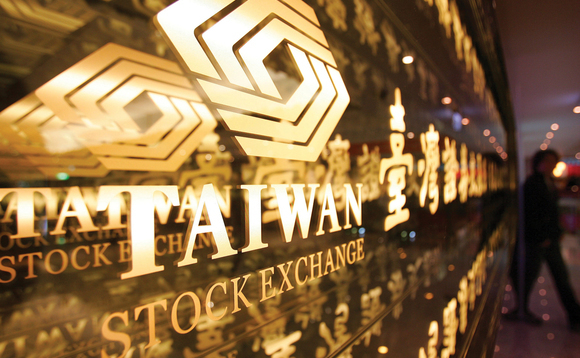
Taiwan IPOs: An alternative exit

With the nascent T-shares program plus a string of incentives, Taiwan wants to establish itself as a hub for China IPOs. Can it pare down the regulatory detritus and make this dream come true?
Public market exits are uncertain ground for private equity-backed Chinese companies. There have been no IPOs on the domestic bourses so far this year and even if the government-mandated hiatus ended tomorrow it would take years to work through the backlog.
The US has become an option once again but only for a lucky few; one VC-invested company has gone public this year and others are in the pipeline, yet to emerge. Hong Kong, meanwhile, at present only accommodates large mainland enterprises, most of them state-owned.
Taiwan, however, is still open for business. The territory is looking to capitalize on the gridlock by presenting itself as an alternative listing destination - a smart idea but one still beset by regulatory obstacles.
The latest innovation is "T-shares," basically the Taiwan equivalent of Hong Kong's H-shares, allowing China-domiciled companies to list on the Taipei exchange. A T-share program was unveiled by Premier Sean Chen at the end of last year and endorsed by the Financial Supervisory Commission (FSC). The FSC's mainland equivalent, the China Securities Regulatory Commission (CSRC) applauded the move.
Eight months on, no follow-up action has been taken, confirming suspicions that, where cross-strait negotiations are concerned, there is no such thing as an easy victory.
"Functional regulatory cooperation between the two governments should come once the T-shares program is put into practice," says Jocelyn Huang, head of the underwriting department at Taiwan-based KGI Securities. "But there are capital controls on both sides, so how is a Chinese firm supposed to raise funds in Taiwan and return them to the mainland? This can only be solved through high-level political communication."
Chinese ownership is the biggest regulatory hurdle for companies looking to go public in Taiwan: A company with 30% or more mainland ownership is considered a Chinese entity and therefore unable to list. Taiwan opened its doors to foreign companies in 2008 and there are now about 50 "F-companies" trading on either the Taiwan Stock Exchange (TWSE) or the over-the-counter GreTai Securities Market.
In order to qualify, foreign companies - including mainland Chinese firms - had to restructure the listing entity so that its shares met a par value of NT$10 apiece before the IPO. This was done under Cayman Islands law so the entity would be domiciled there. The restriction was lifted last year, opening the door to foreign companies domiciled elsewhere, but as yet there have been no IPOs without a par value.
"We may see the first F-company without a par value or with a par value other than NT$10 per share by the end of this year at the earliest," says Jessica Wu, head of international investment banking at KGI Securities. "Over time, we will begin to see F-companies registered in jurisdictions such as Japan and the US emerge on Taiwan's capital market."
Bending the rules
Even with this reform, the obstacles facing Chinese companies are considerable. If it crosses the 30% mainland ownership threshold, a listing applicant must still go through a special approval process run by the FSC. The chances of an IPO are seen as limited.
Rather than go through this rigmarole, many mainland companies take advantage of a loophole that emerged five years ago when the government was encouraging overseas-based enterprises established by Taiwanese businessmen to list domestically. In most cases, these enterprises are based in mainland China.
According to AVCJ Research, five PE-invested Chinese companies went public in Taiwan in 2010, raising $1.19 billion between them. In 2011, eight firms raised $208 million. Tainan Enterprises, a clothing retailer backed by Hong Kong-based Excelsior Capital Asia, was among the first batch of China-based companies owned by Taiwanese entrepreneurs to complete an IPO.
"As it was at a relatively early stage for foreign companies listed in Taiwan at that time, the rules were not very clear to investors and company management. It took us two years to complete the IPO process, even for a Taiwanese-owned foreign company," says John Yang, a partner at Excelsior. "The TWSE spent a lot of time checking the identity of Tainan's ultimate shareholders, especially for LPs invested in the fund, to ensure Chinese ownership was below the 30% cap."
The waiting time for listing on mainland bourses, even before the CSRC halted IPOs at the end of 2012, prompted more Chinese companies to consider Taiwan listings. They have typically followed the classic Hong Kong red chip route - restructuring the business offshore before listing in Taipei.
"The companies' operations are in China and they are not owned by Taiwanese, rather by Chinese people who hold foreign passports," one broker says. As a result, the 30% Chinese ownership cap is rendered meaningless.
Clearly, Taiwan is attractive to Chinese entrepreneurs as an offshore listing market where they have the luxury of greater corporate flexibility. But Hong Kong offers much the same advantages and has already established itself as the IPO hub for Greater China. In this context, the T-shares program is immensely important, representing a direct challenge to Hong Kong.
However, in practical terms it would be much harder for a China-domiciled company to list as a T-share rather than H-share. On a basic level, mainland residents may have to wait several weeks for a Taiwan travel visa, which could rule out visiting for an IPO road show.
Jennifer Wang, a partner at Chen & Lin Attorneys-at-Law, adds that there are two primary reasons for the slow progress of T-shares at a high regulatory level. First, the Taiwan authorities might be concerned about the finances of mainland companies following the accounting scandals that have blighted US-listed Chinese firms in recent years. Second, Beijing and Taipei officials have yet to reach a compromise on how the FSC can investigate the finance and operations of mainland listing applicants.
Engaging the locals
This has not deterred the TWSE from actively courting Chinese companies, according to private equity investors. One of the selling points it that local analysts and investors are familiar with tech stocks. More than half the companies on TWSE are technology-related and they trade at an average price-to-earnings multiple of 14x.
"Mid-cap technology enterprises can enjoy higher visibility in Taiwan because analysts cover complete supply chains of high-tech industries in their research reports. This means tech stocks could enjoy higher valuations and trading volumes," says York Chen, president and managing partner of iD TechVentures.
"One disadvantage is that the government doesn't allow companies with variable internet entity (VIE) structures [commonly used by Chinese internet players to get around foreign ownership restrictions] to list in Taiwan."
Away from the tech space, there is always the risk that unfamiliarity will lead to illiquidity. While Taiwanese investors like China consumer growth stories, such as retail, distribution, and branded consumer businesses, if they don't fully understand them they are liable to steer clear, eroding the valuation and bringing trading to a near standstill.
"It is very important for Chinese companies to allocate significant resources on investor relations so they can communicate developments to the market on a timely basis and improve the transparency, which can in turn improve liquidity after the listing," Excelsior's Yang says.
A final option for private equity investors in need of a quick exit is the reverse merger route, injecting the portfolio company assets into a listed shell. Taiwan is seen as an attractive destination for this practice because shells tend to be much cheaper than in Hong Kong -NT$200 million ($6.7 million) versus up to HK$300 million ($38.7 million).
Scott Liang, assurance partner at Ernst & Young Taiwan, notes that the recent sharp increases in trading of technology shares that previously had a low turnover rate is often an indicator of reverse merger activity. It can bring down the waiting period - a proper IPO takes between six months and two years - but shell companies often come with bad reputations.
For this reason, reverse mergers are unlikely to become common practice in Taiwan - and even less so if the island state can establish itself as a credible listing location. In addition to pushing forward on the T-shares program, KGI Securities recommends abolishing the 30% Chinese ownership cap, making it easier for companies that already have or would like to restructure offshore to complete a public listing.
"We definitely see Taiwan's capital market will gradually open-up," says Ernst & Young's Liang. "The Taiwan government is also learning from the experience of the US and Hong Kong and putting in place better governance procedures. It is striking a balance between investor protection and financial market internationalization."
Latest News
Asian GPs slow implementation of ESG policies - survey
Asia-based private equity firms are assigning more dedicated resources to environment, social, and governance (ESG) programmes, but policy changes have slowed in the past 12 months, in part due to concerns raised internally and by LPs, according to a...
Singapore fintech start-up LXA gets $10m seed round
New Enterprise Associates (NEA) has led a USD 10m seed round for Singapore’s LXA, a financial technology start-up launched by a former Asia senior executive at The Blackstone Group.
India's InCred announces $60m round, claims unicorn status
Indian non-bank lender InCred Financial Services said it has received INR 5bn (USD 60m) at a valuation of at least USD 1bn from unnamed investors including “a global private equity fund.”
Insight leads $50m round for Australia's Roller
Insight Partners has led a USD 50m round for Australia’s Roller, a venue management software provider specializing in family fun parks.






